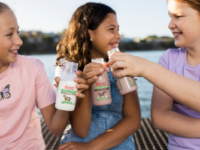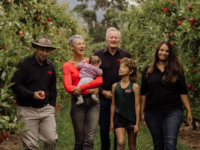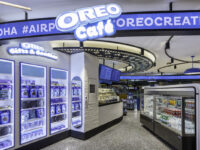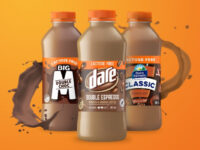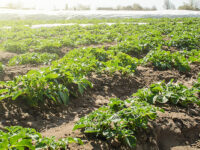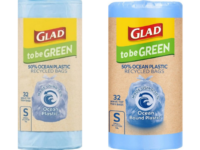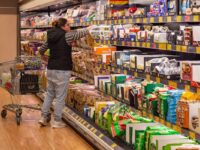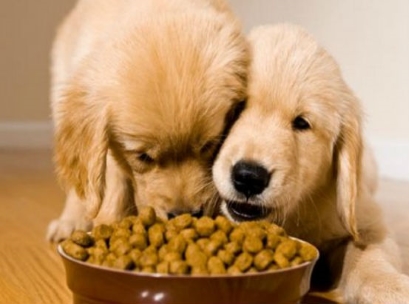 The Rural and Regional Affairs and Transport References Committee inquiry was set up in June following several cases in which dogs fell ill after eating pet food.
The Rural and Regional Affairs and Transport References Committee inquiry was set up in June following several cases in which dogs fell ill after eating pet food.
Currently, the pet food industry in Australia is self-regulated. The Australian Standards for the manufacturing and marketing of pet food are voluntary, and published behind a paywall.
There is no mandatory recall system for pet food, and no mechanism for consumers to report adverse events. Essentially, there is minimal government oversight of this industry. This makes it hard for pet owners to be confident the food they feed their beloved pets is both safe and nutritious.
The Senate report makes seven recommendations including calls for:
- the standards to be made mandatory and publicly accessible
- a national pet food manufacturing and safety policy framework to be established
- for the Australian Competition and Consumer Commission (ACCC) to create a consumer reporting mechanism and improved recall systems.
The inquiry considered more than 150 public submissions from veterinarians, welfare organisations such as the RSPCA, industry groups, and concerned individuals. It also included two days of public hearings. Most of those submissions and presentations called strongly for change.
Sick dogs prompt food recall
This inquiry into pet food regulation started after public outcry around the recall of Advance Dermocare dog food. The product was recalled in March this year after several dogs developed life-threating oesophageal weakness (megaoesophagus) while being fed the food.
It took the pet food manufacturer three months to announce the recall after being notified of the cluster of sick dogs in December 2017. Although this seems slow, there are actually no specific laws in Australia that force a pet food manufacturer to initiate a recall if their food is making pets sick.
There is a system called PetFAST, which is a voluntary recall initiative between the Australian Veterinary Association and the pet food industry body, the Pet Food Industry Association of Australia (PFIAA).
The PetFAST system arose after two incidents spanning 2007 to 2009 resulted in the deaths and illnesses of dozens of cats and dogs. Irradiated cat food imported from Canada caused paralysis in cats and imported chicken-jerky treats for dogs from China caused kidney toxicity. At the time, no recall mechanisms for pet food safety incidents existed. The PetFAST system has helped with recent recalls of both cat and dog food. But it isn’t perfect.
It relies on veterinarians to recognise a possible link between a disease and a pet food, and on the pet food manufacturer to investigate and recall a product if required. Unfortunately it isn’t able to be used by consumers to report safety incidents, only veterinarians. There are some laws that restrict what a pet food manufacturer can and can’t claim about a particular pet food. There are also restrictions around the importation of pet food products.
But the standards around the safety and nutrition of pet food aren’t mandatory. Combined with the lack of independent oversight of the industry, this creates a situation in which consumer trust and industry transparency are thin on the ground.
We’ve been here before
This week’s Senate report isn’t the first to call for improvements in the pet food industry. A government working group into pet food regulation was formed in 2009 after the pet food safety incidents involving irradiated cat food and chicken-jerky treats.
Another working group into pet food regulation was set up this month by the federal government, pre-empting the Senate inquiry report. Although some improvements arose from the original working group, such as the PetFAST recall system and voluntary standards, what we really need now is definitive action.
The pet food industry in Australia has a revenue of more than A$4 billion a year and pet owners want to know that food is both safe and nutritious. Submissions to the inquiry from the main manufacturers in Australia, as well as industry body the PFIAA, show increased regulation and mandatory standards are likely to be supported if recommended by government.
These measures are also supported by veterinarians, animal welfare groups such as the RSPCA, and consumer groups such as Choice. What are the next steps? Both federal and state governments need to take action. The RSPCA also recommends mandatory auditing against the standards and expanding the standards to cover other pets such as rabbits and birds.
We know what needs to happen and there is widespread support for change. The new working group formed by the federal government to investigate pet food safety in Australia will report within 12 months.
Let’s hope the federal and state governments are willing to act on the report this time around. It’s been a decade since this issue was brought to the government’s attention. Australian pet owners shouldn’t have to wait any longer for real change.
Bronwyn Orr, Veterinarian and PhD candidate, University of Sydney and Richard Malik, Veterinary Internist (Specialist), University of Sydney. This article is republished from The Conversation under a Creative Commons license. Read the original article.




